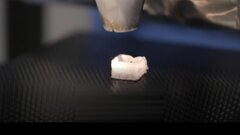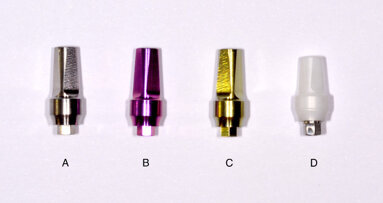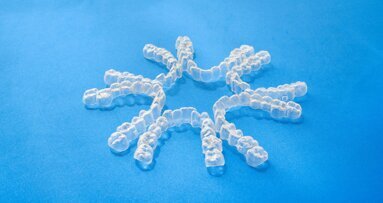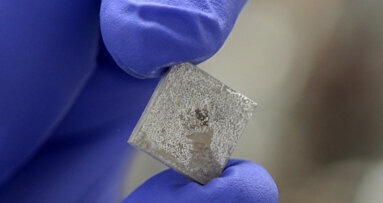HONG KONG, China: Moisture is one of the greatest challenges for dental fillings, as it reduces adhesive performance. To overcome this obstacle, researchers from the Faculty of Dentistry of the University of Hong Kong (HKU), Wuhan University and Peking University Shenzhen Hospital turned to nature and found an answer in a mussel-derived compound. After studying its performance in various tests, they found that the compound can improve the durability of the resin–dentine bond and thus the longevity of dental fillings.
Dental fillings are clinically challenging, since the restoration’s success is affected by factors such as the moist environment of the oral cavity and mechanical stress caused by chewing. Failure of the resin–dentine bond results in increased visits and costs for the patient.
Lead researcher Dr Cynthia Kar Yung Yiu, clinical professor of paediatric dentistry at HKU, explained in a press release that mussels need to maintain their adhesive properties under harsh conditions, such as humidity, extreme temperature changes and pH values, and mechanical shocks—circumstances similar to the conditions in the oral cavity.
The wet adhesion property of mussels has long been of interest to scientists, and several studies have focused on how this quality could be used in clinical practice. Such applications have included surgical protein glues for wound closure, microneedle bandages for cardiac tissue regeneration and materials for drug delivery.
The properties of mussels have also been widely used in dental applications. As reported by Dental Tribune International, mussel-derived solutions have enhanced dental implant coatings, helped create more biocompatible implants, advanced the treatment of dentine hypersensitivity and inspired the development of tougher products for restorative dentistry.
Evaluation of clinical performance
The wet adhesion property of mussels is attributed to a derivative of the amino acid tyrosine, called dopa, in the mussel adhesive protein which the marine organisms secrete to stick to surfaces in moist environments. The research team evaluated the performance of a mussel-derived compound based on this (DMA) as a functional monomer in dental adhesives regarding the durability of the resin–dentine bond.
The team compared the durability of the control group with three solutions containing different concentrations of DMA in various tests. The results showed that DMA successfully linked with dentine collagen, polymerised with the adhesive without affecting the degree of conversion or elastic modulus, strengthened the integrity of the resin–dentine interface, prolonged the durability of the bond and inhibited the activity of endogenous metalloproteinases, which are involved in the degradation of collagen and of the resin–dentine interface. The findings indicate that DMA can polymerise with resin monomers without hampering the adhesive’s mechanical strength and may prevent bond failure caused by a sudden change in stress.
Co-author Dr James Kit Hon Tsoi, associate professor of dental material science at HKU, summarised the research findings and gave an outlook for the future: “This research discovered that DMA is effective in strengthening the resin–dentine bond and improves its durability. The cytotoxicity is also similar to the resin monomers in traditional dental adhesives. It is believed that this compound may be commercialised in the future.”
Remaining challenges
Despite the performance of DMA, the researchers raised concerns about its limited shelf life. During testing, the DMA solution turned a faintly yellow colour after two months, a characteristic that would prove unpractical for clinical usage. Thus, future studies may consider adding antioxidants to the DMA solution in order to avoid this effect.
The study, titled “Enhancing resin-dentin bond durability using a novel mussel-inspired monomer”, was published in the September 2021 issue of Materials Today Bio.
Tags:
HEFEI, China/HONG KONG: In a new study, biomaterial scientists have found that a substance similar to the adhesive that mussels use to attach to rocks and ...
LONDON, England: Researchers at King’s College London have recently published details of research which combines biological insights with cutting-edge ...
In recent years, periimplantitis has been extensively studied as bone loss has been observed around dental implants. As a result of multiple factors, ...
Running a dental practice is a multifaceted endeavour that requires not only excellent clinical knowledge but also a solid understanding of business. In ...
According to a recent study, aligner force depends on the type of material and the direction of movement, and multilayer materials are superior to ...
SEOUL, South Korea: The history of dental implantology dates back to ancient times, yet researchers are still trying solve a number of issues, such as ...
PORTLAND, Ore., U.S.: A recent study has found that a compound used to make car bumpers more robust and protect wood decks could make dental fillings last ...
SEOUL, South Korea/BIRMINGHAM, Ala., U.S.: Root canal treatments currently rely on clotted blood to fill the empty tooth canal. In order to find a more ...
HONG KONG: A rapidly ageing population and widening wealth gap are contributing to an urgent need for affordable access to dental services in Hong Kong. On ...
COLOGNE, Germany: When it comes to dental restorations, efficiency and aesthetics are two crucial factors that must be taken into consideration. With the ...
Live webinar
Tue. 3 March 2026
11:00 am EST (New York)
Dr. Omar Lugo Cirujano Maxilofacial
Live webinar
Tue. 3 March 2026
8:00 pm EST (New York)
Dr. Vasiliki Maseli DDS, MS, EdM
Live webinar
Wed. 4 March 2026
12:00 pm EST (New York)
Munther Sulieman LDS RCS (Eng) BDS (Lond) MSc PhD
Live webinar
Wed. 4 March 2026
1:00 pm EST (New York)
Live webinar
Fri. 6 March 2026
3:00 am EST (New York)
Live webinar
Tue. 10 March 2026
4:00 am EST (New York)
Assoc. Prof. Aaron Davis, Prof. Sarah Baker
Live webinar
Tue. 10 March 2026
8:00 pm EST (New York)
Dr. Vasiliki Maseli DDS, MS, EdM



 Austria / Österreich
Austria / Österreich
 Bosnia and Herzegovina / Босна и Херцеговина
Bosnia and Herzegovina / Босна и Херцеговина
 Bulgaria / България
Bulgaria / България
 Croatia / Hrvatska
Croatia / Hrvatska
 Czech Republic & Slovakia / Česká republika & Slovensko
Czech Republic & Slovakia / Česká republika & Slovensko
 France / France
France / France
 Germany / Deutschland
Germany / Deutschland
 Greece / ΕΛΛΑΔΑ
Greece / ΕΛΛΑΔΑ
 Hungary / Hungary
Hungary / Hungary
 Italy / Italia
Italy / Italia
 Netherlands / Nederland
Netherlands / Nederland
 Nordic / Nordic
Nordic / Nordic
 Poland / Polska
Poland / Polska
 Portugal / Portugal
Portugal / Portugal
 Romania & Moldova / România & Moldova
Romania & Moldova / România & Moldova
 Slovenia / Slovenija
Slovenia / Slovenija
 Serbia & Montenegro / Србија и Црна Гора
Serbia & Montenegro / Србија и Црна Гора
 Spain / España
Spain / España
 Switzerland / Schweiz
Switzerland / Schweiz
 Turkey / Türkiye
Turkey / Türkiye
 UK & Ireland / UK & Ireland
UK & Ireland / UK & Ireland
 Brazil / Brasil
Brazil / Brasil
 Canada / Canada
Canada / Canada
 Latin America / Latinoamérica
Latin America / Latinoamérica
 USA / USA
USA / USA
 China / 中国
China / 中国
 India / भारत गणराज्य
India / भारत गणराज्य
 Pakistan / Pākistān
Pakistan / Pākistān
 Vietnam / Việt Nam
Vietnam / Việt Nam
 ASEAN / ASEAN
ASEAN / ASEAN
 Israel / מְדִינַת יִשְׂרָאֵל
Israel / מְדִינַת יִשְׂרָאֵל
 Algeria, Morocco & Tunisia / الجزائر والمغرب وتونس
Algeria, Morocco & Tunisia / الجزائر والمغرب وتونس
 Middle East / Middle East
Middle East / Middle East











































To post a reply please login or register